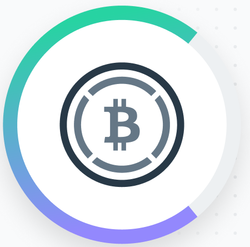
The crypto market is going through a bitterly cold winter right now. Ten of the 14 largest crypto names, as measured by market cap, have lost more than 40% of their value in 2022. This shakeout will almost certainly destroy thousands of cryptocurrency networks, helping the open market weed out inferior technical designs and questionable financial systems. The process is painful for investors who placed a lot of money into failing crypto ideas, but the crisis should drive the surviving cryptos toward a healthier market in the long run.
Not every investor sees the crypto winter my way, of course. Some would argue that the current mess could be the beginning of the end. Cryptocurrencies are hardly worth the digital bits they’re printed on, and the correct value of any crypto name on the market today should be zero. That’s the view of true skeptics, who see no inherent value in digital currencies and blockchain networks. Some of the brightest minds in the investment field belong to this group, including Berkshire Hathaway CEO Warren Buffett and JP Morgan Chase (JPM 1.07%) CEO Jamie Dimon.
Those legendary money managers may be wrong, though.
The banking industry seems ripe for some disruption and fresh ideas. Cryptocurrencies could deliver plenty of both, given half a chance. The basic idea of a blockchain network is to manage a secure, incorruptible ledger of transactions and ownership records on a globally available computer network.
If that idea doesn’t sound like the start of a million financial technology projects with serious real-world value, I’m afraid the rest of this article won’t be your cup of tea. In that case, you might prefer reading up on bank stocks with robust dividends instead, or maybe you want to check out some of the most compelling value stocks on the market today. There’s nothing wrong with that, and I’m not here to change your investing style.
But if you’re still reading, let me show you some of the most promising growth prospects in today’s crypto sector. These names seem poised to survive this winter and evolve into powerhouses in a blockchain-powered era of banking, payments, and money management.
JP Morgan’s crucial crypto experiment
Dimon may not be a fan of cryptocurrencies, but his company is taking digital assets seriously nowadays.
The massive bank recently completed an important test of crypto-based money transfer technologies. Partnering with a handful of Japanese and Singaporean banks, JP Morgan facilitated the transfer of tokenized Singaporean dollars into Japanese yen, and back again.
The transfers relied on the Polygon (MATIC -1.96%) network, which provides lower-cost and more scalable transactions on the underlying Ethereum blockchain. The test also involved ultra-secure lending pools on both sides of the transactions, locking down the temporary holdings of digitalized cash with the Aave (AAVE 0.63%) decentralized finance protocol. JP Morgan also developed an advanced crypto wallet for this experiment, meeting the specific requirements of large-scale financial institutions.
Border-crossing transactions like the ones in JP Morgan’s test run can be costly and slow. Using a traditional wire transfer, it could take up to five days before the 100,000 Singaporean dollars (worth roughly $72,100) reached Japan, with transaction fees skimming $330 off the top. In the JP Morgan experiment, Polygon’s transaction fees for the same transfer worked out to $0.23. The money reached the Japanese target bank in minutes. What’s not to love about a system that wipes out transaction fees and sends money nearly instantaneously?
What’s the big deal?
So JP Morgan is kicking the tires of these newfangled cryptocurrency assets, and the megabank learned some valuable lessons here. For ordinary crypto investors, the test proved that Polygon and Aave can be trusted to execute international money transfers, at JP Morgan’s standards for verifiable security.
This vote of confidence in Aave and Polygon from one of the world’s largest and most trusted banks should turn heads in the financial community. At the same time, both of these cryptos have taken massive price cuts in 2022. Aave tokens have lost 77% of their value year to date and Polygon’s digital coins are down by 48% over the same period.
Due to this combination of freshly proven real-world usability and deeply discounted prices, I see incredible long-term value in Aave and Polygon. I expect many decentralized finance developers to take a long, hard look at these trusted platforms before building their next projects.
Since cryptocurrencies can build sustainable value only by finding lots of use cases and development projects, Polygon’s and Aave’s prices should benefit from the boosted market attention. And that’s why I think they are among the best growth-oriented crypto investments in the current market.
JPMorgan Chase is an advertising partner of The Ascent, a Motley Fool company. Anders Bylund has positions in Ethereum. The Motley Fool has positions in and recommends Aave, Berkshire Hathaway (B shares), Ethereum, JPMorgan Chase, and Polygon. The Motley Fool recommends the following options: long January 2023 $200 calls on Berkshire Hathaway (B shares), short January 2023 $200 puts on Berkshire Hathaway (B shares), and short January 2023 $265 calls on Berkshire Hathaway (B shares). The Motley Fool has a disclosure policy.










































































Be the first to comment